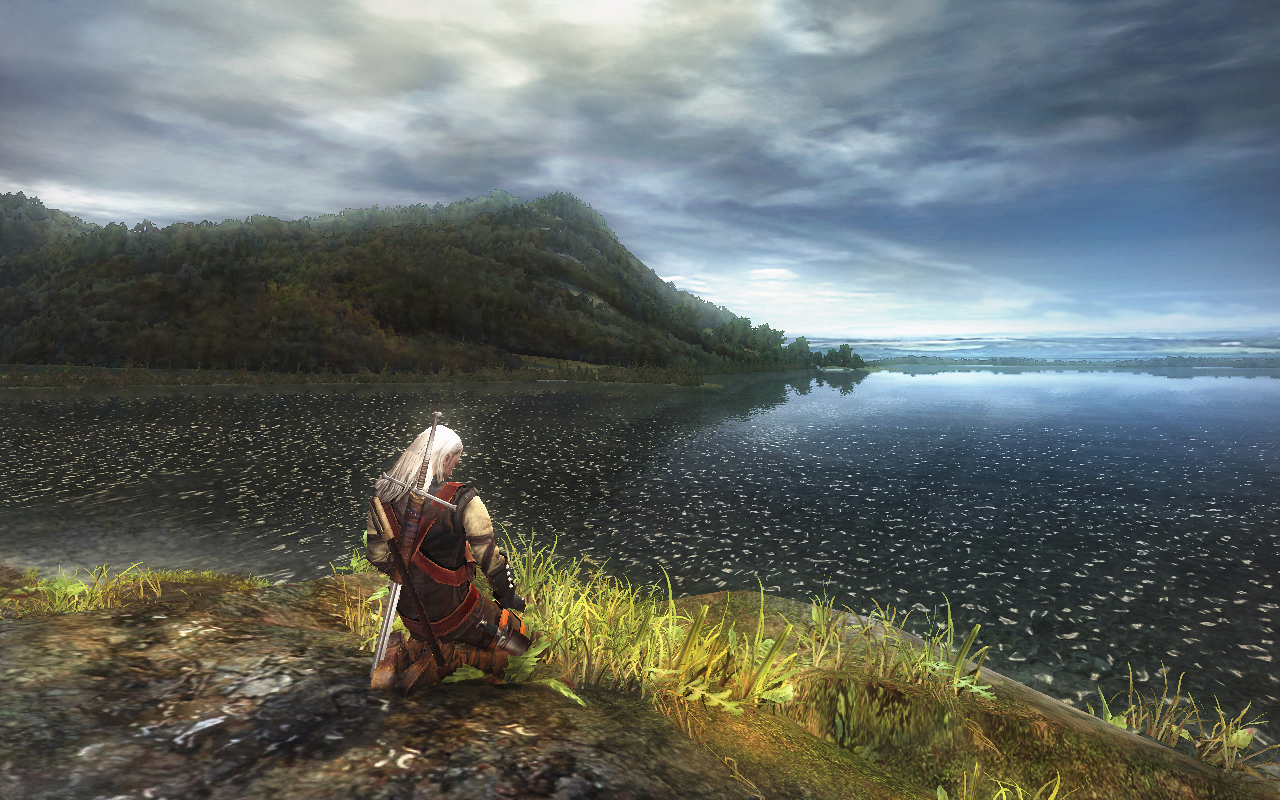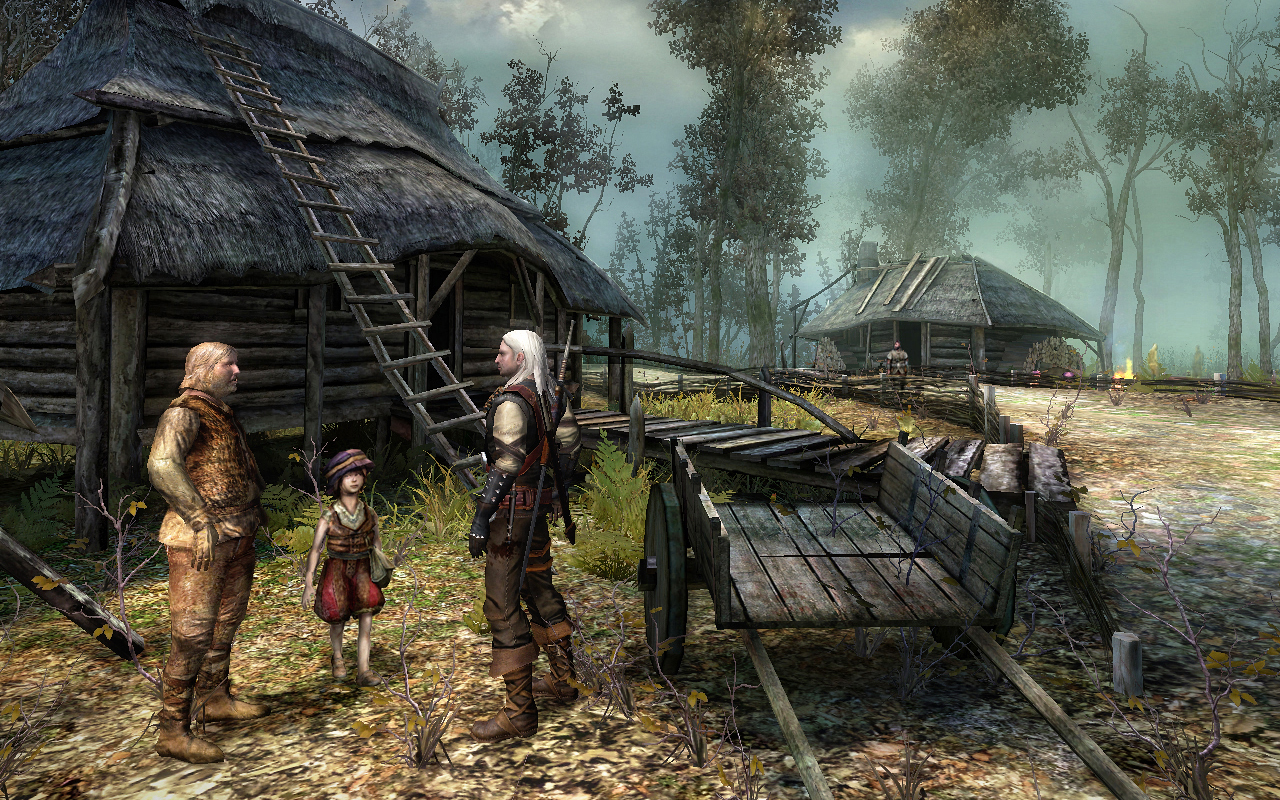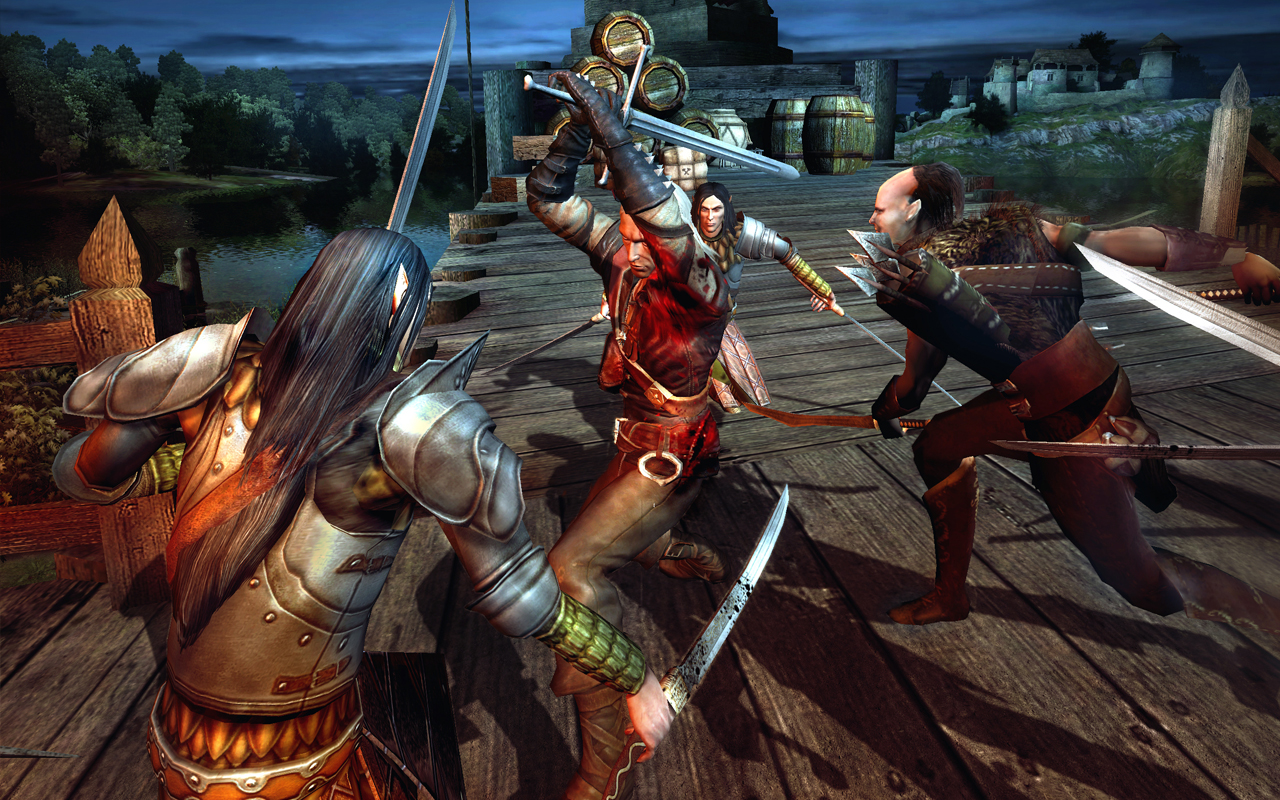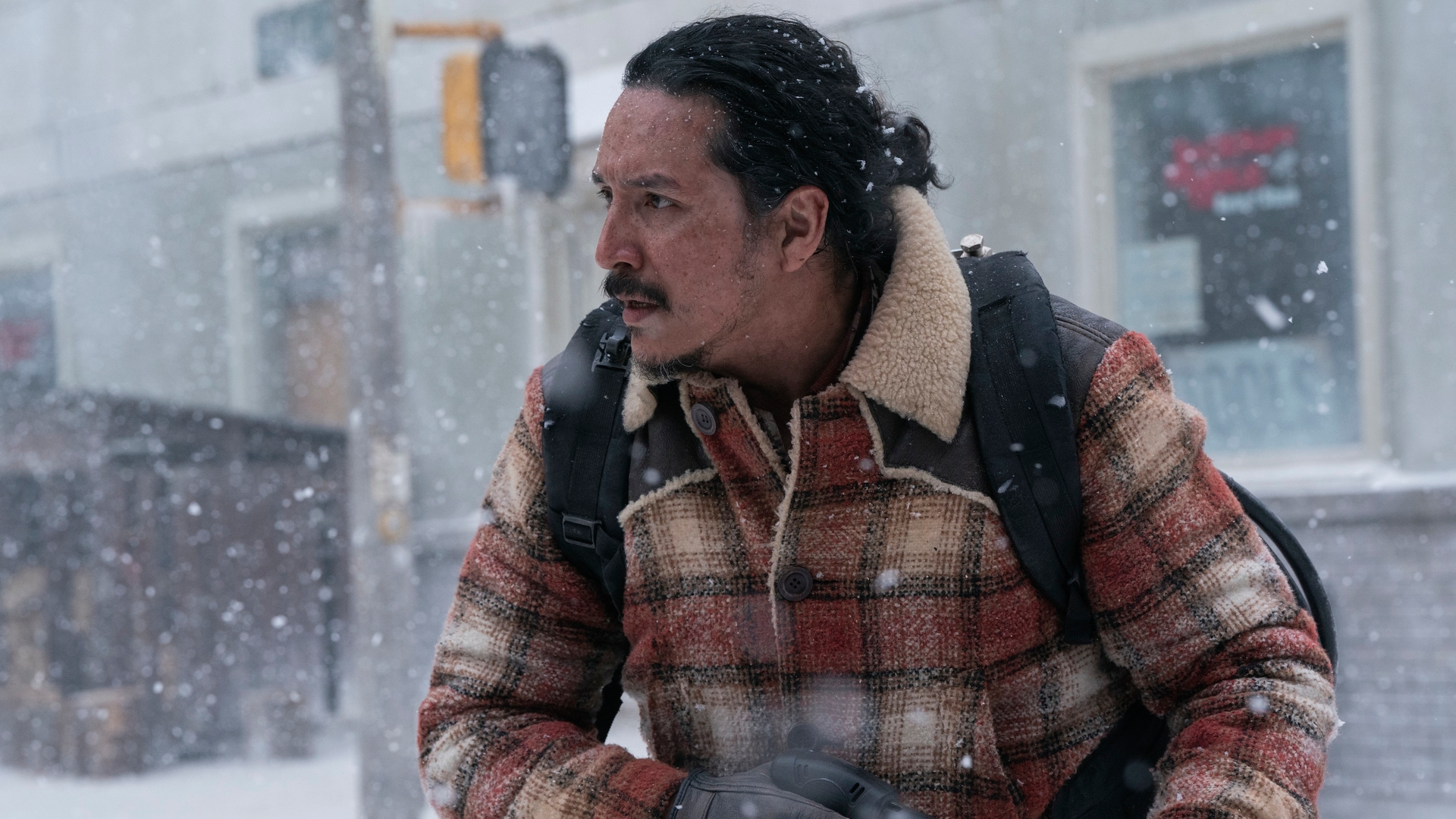The Witcher Remake is exactly why we have remakes
The Witcher is getting a full remake, which is just what the game needs

If you were to look up the best games of 2007, you probably wouldn’t find The Witcher on many lists. This is partially because 2007 was an unusually good year for gaming, with beloved series such as BioShock, Mass Effect, Assassin’s Creed, Uncharted, Rock Band and Portal making their debuts. But it’s also because The Witcher was — if we’re being brutally honest — not the strongest first showing for the series. That’s why CD Projekt Red’s top-to-bottom remake of The Witcher seems like such a good idea.
Earlier this week, CD Projekt Red, which developed the three Witcher games and published the latter two, announced that “the original Witcher game is being remade from the ground up.” There’s no timeline for The Witcher Remake project, but the company is working alongside developer Fool’s Theory, which employs team members from The Witcher 2: Assassins of Kings and The Witcher 3: Wild Hunt. In other words, the Witcher Remake’s pedigree seems solid; the only question is whether this game — which is perfectly playable on modern PCs — needs the full remake treatment.
I would argue that it does, especially when you consider just how much The Witcher 2 and 3 evolved the first game’s ambitious-but-convoluted mechanics. However, as with any remake, there’s the potential for some of the inventive aspects that made The Witcher a cult classic in the first place to get lost along the way.
A world without The Witcher

In case you’ve never played the first Witcher game (and based on Steam Charts, this is a lot of you), it’s a PC-exclusive RPG where you play as roving monster hunter Geralt of Rivia. Acting as a noncanonical sequel to Andrzej Sapkowski’s Witcher novels, The Witcher included a lot of the same elements that made the books work, including a morally gray story, a sharp script and a dry sense of humor. It also introduced an open-ended character progression system, inventive swordplay and a series of interesting levels to explore.
When The Witcher came out, fans and critics received it politely, but not exuberantly. Going by Metacritic ratings (which are not the be-all, end-all of game reviews, but a useful starting point nonetheless), The Witcher was the 126th highest-rated game of 2007, ranking well behind Contra 4 on the DS, WarioWare: Smooth Moves on the Wii and Jeanne d’Arc on the PSP. Contemporary reviews of The Witcher praised the game’s tough moral choices, idiosyncratic setting and strong level design, while criticizing its finnicky combat, repetitive dialogue and buggy presentation. It’s worth noting that all of these observations are fair, even in hindsight.
However, it’s important to remember that gamers went into The Witcher, by and large, without any preconceived notions. While today, The Witcher has half-a-dozen bestselling games, a beloved Netflix adaptation and a full series of translated books, the series’ cultural cachet in 2007 looked much different. Before CD Projekt’s game came out, the only exposure English-speaking audiences had to The Witcher was a single translation of a short story in 2000. Not that gamers would necessarily have recognized the connection; in its initial translation, the story used the word “Hexer” rather than “Witcher.”
It's also worth remembering that PC-style RPGs were a whole lot less universally accessible in 2007 than they are today. While series such as Dragon Age, Pillars of Eternity, Diablo and Fallout are widely available on consoles today, they used to require fairly powerful gaming rigs — not to mention a player base that was willing to tolerate both a steep learning curve and a bevy of technical issues. There’s actually a fairly storied history of “Eurojank” games like The Witcher — ambitious cult classics from Eastern European developers, which nonetheless take a lot of patience to fully appreciate.
To put it another way, you can jump into The Witcher 3 and start having fun within the first 10 minutes. The original Witcher makes you work for your fun. That’s not necessarily a bad thing, but The Witcher 2 and 3 have shown us that the series can be accessible without losing any story or gameplay depth in the process.
What should stay, and what should go

To start with a caveat, we have almost no information about The Witcher Remake. When CD Projekt Red says that it intends to remake the game “from the ground up,” we don’t know whether it will be a shot-for-shot remake, like Demon’s Souls, or a more open-ended reimagining, like the Final Fantasy VII Remake. For argument’s sake, though, let’s pretend that CD Projekt Red wants to take the latter route, since The Witcher has a lot of rough edges that could use some sanding down.
Graphics
We can safely assume that the remake will have brand-new graphics. The original game’s voice acting was a little on the rough side, and I doubt many players would complain if CD Projekt Red got The Witcher 3’s voice cast back on board for the remake instead. (Doug Cockle, who voiced Geralt flawlessly in all three games, is nonnegotiable, of course.)
Beyond that, though, CD Projekt has a lot of leeway, depending on whether the company wants to preserve the game intact or make it more of a pick-up-and-play experience. To that end, I think the company will have to make two big choices: what to do about the combat, and whether to change the quest design.
Combat
First off, the combat system in The Witcher could probably be a whole article by itself, but it’s not your typical action/RPG fare. Instead of the standard light attacks, heavy attacks, blocking and dodging, The Witcher’s combat feels more like a rhythm game. In addition to steel swords for human foes and silver swords for monstrous foes, you can switch among three combat stances: Strong style, Fast style and Group style. Each style has a completely different cadence, and you need to click the left mouse button in time with the prompts, or else lose your combo. The prompts also get longer and more complex as you level up your skills.
I personally loved the game’s combat simply because it’s so different, and I’m not alone. But even a cursory reading of The Witcher’s contemporary reviews reveal that many players would have preferred a more straightforward system — which The Witcher 2 and 3 ultimately went with. There are pros and cons to either approach, but I wonder whether CD Projekt Red will ultimately go for historical preservation or user-friendliness.
Quest design
The quest design in The Witcher is also much more complex than modern gamers might be used to. Quest prompts don’t tell you exactly where to go, or which prerequisites you’ll need to complete them properly. It’s entirely possible to blunder your way through a quest, get your rewards, and discover hours later that you botched the whole thing. Even something as simple as “kill X number of monsters” can be a convoluted process, since you’ll need to buy expensive research books on each monster type before your kills “count.” The latter two Witcher games make it much easier to know where you’re going, and much harder to screw up badly.
It also probably goes without saying that the mini-game where you collected trading cards of naked women after sleeping with them has to go.
Whatever CD Projekt Red decides, The Witcher Remake sounds like a timely project that could introduce a whole new audience to an underrated RPG. And if you simply can’t wait that long, you can always play The Witcher: Enhanced Edition on Steam — provided you’re OK with some dated and clunky elements. There’s still a great story underneath.
CD Projekt Red has confirmed that The Witcher Remake will be open-world, which might be both, good and bad.
Sign up to get the BEST of Tom's Guide direct to your inbox.
Get instant access to breaking news, the hottest reviews, great deals and helpful tips.
Marshall Honorof is a senior editor for Tom's Guide, overseeing the site's coverage of gaming hardware and software. He comes from a science writing background, having studied paleomammalogy, biological anthropology, and the history of science and technology. After hours, you can find him practicing taekwondo or doing deep dives on classic sci-fi.

